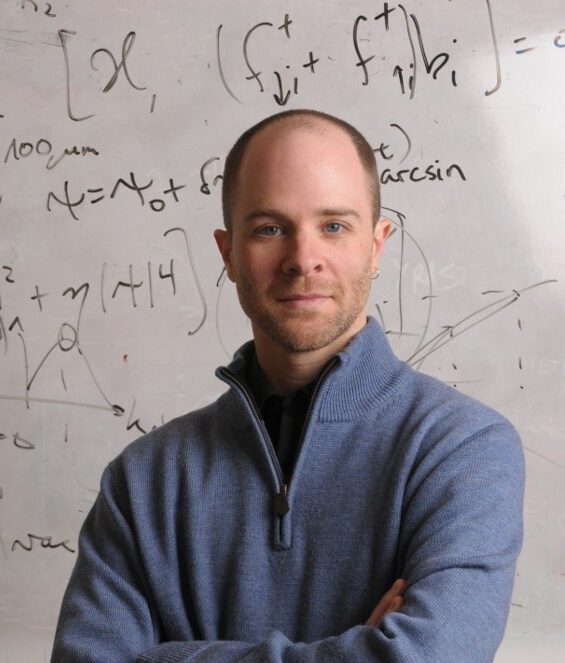Speaker: Lincoln Carr
Date Friday, January 26th, 2024
Time: 3:30PM – 4:30PM
Location: Molecular Engineering & Sciences Building, Room 115 (located on the Ground floor)
Abstract: The application of graph theory to networks has resulted in a myriad of classical applications across biology, economics, epidemiology, sociology, and soft condensed matter physics. Recent quantum information devices allow us access to large, complex quantum states with non-trivial entanglement structure. In this talk, I will use three case studies to show the ease and usefulness of complex network theory in identifying novel features of known quantum systems and new kinds of quantum states accessible in noisy intermediate-scale quantum (NISQ) scenarios.
Bio: Lincoln D. Carr received his B.A. from the University of California, Berkeley, and his M.S. and Ph.D. in Physics from the University of Washington, Seattle. He is an IEEE Senior Member, a Fellow of the American Physical Society, a Kavli Fellow and a Jefferson Science Fellow of the National Academies of Sciences, Engineering, and Medicine, an Alexander von Humboldt Fellow, a National Science Foundation Distinguished International Fellow, and an Embassy Science Fellow of the U.S. Department of State. He is an Honors Faculty Fellow and Payne Institute for Public Policy Fellow at the Colorado School of Mines, where he is a Professor in the Quantum Engineering Program and the Physics Department, and a Graduate Faculty Advisor in the Applied Mathematics and Statistics Department. His research brings together complexity theory, quantum information science and engineering, education, condensed-matter physics, atomic, molecular, and optical physics, nonlinear dynamics, computational physics, and applied mathematics, pushing the frontiers of complexity theory in the quantum world. To date he has mentored over 120 students in research. He has taught for over 30 years in science and engineering, social sciences, and the humanities on topics ranging from quantum physics and engineering to revolutions in science, literature, and society to science and engineering diplomacy.
